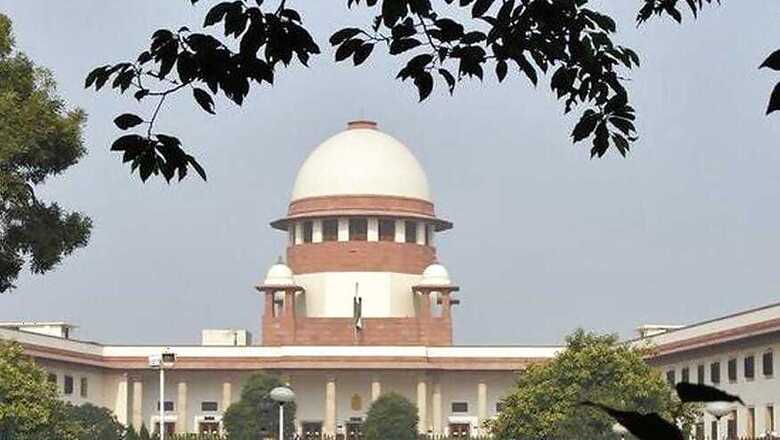
views
New Delhi: The Supreme Court on Friday refrained from passing an interim order staying deportation of Rohingya Muslims after the Centre said it understood the "immense value" of the Court's oral observations, apart from its own obligations in international matters.
Additional Solicitor General Tushar Mehta persisted with a bench headed by Chief Justice of India Dipak Misra when the bench said it will fix the matte for detailed hearing next month. "Till then you don't deport anybody. We will say that in our order. Take actions whenever you find anything wrong with individuals but don't deport everyone," the bench told the law officer.
Mehta, however, resisted the interim order tooth and nail. He pointed out that the batch of petitioners, being led by senior lawyer Fali S Nariman, were given liberty to approach the Court if any contingency arises. "Apparently nothing has happened between the last date (more than a fortnight ago) and today. And that's why there is no such prayer even by the petitioner today to issue any interim order," he said.
The Court then said it understands why the government would not want to invite an order from the bench but in that case, the interim order would say: "Don't give rise to any contingency".
Mehta replied that the government was conscious of its obligations and that any interim order will have huge ramifications.
"We understand our responsibility very well, especially in such cases of international ramifications. This Court's oral observations too have immense value for us," he stated.
At this, the bench proposed to change its interim order. "So we will say if any contingency arises, liberty is granted to the petitioner to cone to this Court," the CJI said.
But the ASG sought to avoid even this order from the top court. "Even a word from this Court will have international ramifications. It will make international news," said Mehta.
The bench retorted that what could be the government's problem if only a liberty was being given to the petitioner to move the Court without passing any positive order for the executive.
Mehta responded: "Are we oblivious to our duties? We can hear all the observations by this Court. We do understand our duties."
Justice Misra then said that the bench would only record in its order that "needless to say, the matter is sub-judice before this Court".
Mehta opposed this too. He said that there should not be any statement attributable to the Court in its order because the government "will have to face this internationally".
Finally, the bench concluded its order by simply recording that Nariman says he would approach the Court in case of any contingency.
Earlier, the bench had said that a balance needs to be stuck between the overarching human interest and issues of national security.
"There has to be a broader humanitarian spectrum but national interest cannot be secondary too. The question is how to strike a balance. It is an issue of big magnitude and the State has a big role. The State will have to adopt a multi-pronged approach," it observed while hearing a bunch of PILs to stop deportation of Rohingya refugees -- mostly Muslims.
The bench had further remarked that neither a constitutional court nor the government could remain oblivious to the plight of innocent children, women, old and infirm.
It will start hearing the matter at length from November 21.



















Comments
0 comment